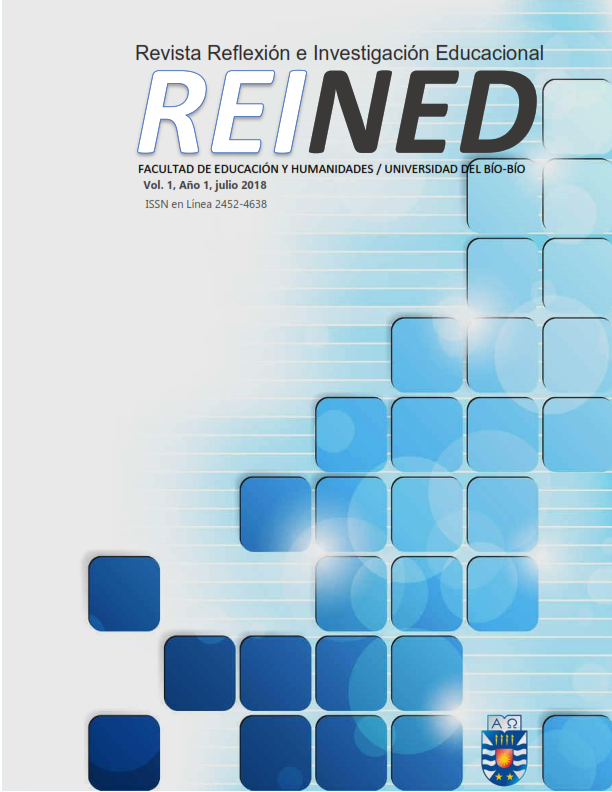Design of an intervention proposal to improve social skills in students with ADHD
Main Article Content
Abstract
Attention Deficit Disorder and / or Hyperactivity Disorder (ADHD) is a syndrome that hinders both the learning process of students and the relationships they establish with their peers, due to the characteristics that define them. For this reason, it is considered necessary to develop an intervention proposal that promotes the development of social skills of children with ADHD and thus support the educational community with strategies fostering social skills. In this way, we are committed to an active methodology, since it is considered essential to design entertaining activities and attractive materials to enhance the acquisition of knowledge established in these areas. In addition, it is considered fundamental to involve teachers and family in the educational training process, understanding that the primary and secondary socialization spaces are those that give children the limits and essential standards to co-exist with the environment. Considering this, this proposal offers guidelines targeting that involvement, in order to ensure a proper learning process not only at an academic level, but also at a personal level.
Article Details
References
Almir, D. y Aparecida, Z. (2013). Programas eficaces de entrenamiento en habilidades sociales basaos en métodos vivenciales. Apuntes de Psicología, 31(3), 67-76
Alvord, J. (1974). Economía de fichas. México: Editorial Ciencia de la Conducta.
Amador Campos, J. A., Idiázabal Alecha, M. A., Sangorrín García, J., Espadaler Gamissans, J. M. y Forns i Santacana, M. (2002). Utilidad de las escalas de Conners para discriminar entre sujetos con y sin trastorno por déficitde atención con hiperactividad. Psicothema, 14(2), 350-356.
American Psychiatric Association [APA] (2013). Diagnostic and Statistical Manual of Mental Disorders. Fifth Edition (Washington, DC: American Psychiatric Association).
Anastopoulos, A., Smith, J. y Wein, E. (1998). Counseling and Training Parents. En R. Barkley, (Eds.), Attention Deficit Hyperactivity Disorder: Ahandbookfor diagnosis and treatment (pp. 373-394). New York: The Guilford Press.
Bieber, J. (1994). Learning disabilities and social skillswith Richard La Voie: Lastonepicked. Firston epickedon. Washington, DC: Public Broadcasting Service.
Caballo, V. (2005). Manual de Evaluación y entrenamiento de las habilidades sociales. (6° Edición). Madrid: Siglo XXI.
Calderón, C. (2001). Resultados de un programa de tratamiento cognitivo-conductual para niños con Trastorno por déficit de atención con hiperactividad. Anuario de Psicología, 32(4), 79-98.
Gil Rodríguez, F., León Rubio, J. y Jarana Expósito, L. (Eds) (1995). Habilidades sociales y salud, Madrid: Pirámide.
Kennedy, J. (1992). Relationship of maternal beliefs and childrearing strategiesto social competence in preschool children. Child Study Journal, 22(1), 39-61
Llenas, A. (2012). El Monstruo de los Colores. Editorial: Flamboyant.
López, G., López, L. y Díaz, A. (2015). Trastorno por déficit de atención con hiperactividad (TDAH) y actividad física. Revista digital de educación física, 6(32), 53-65.
Martín, X. (1992). El role-playing, una técnica para facilitar la empatía y la perspectiva social. Comunicación, Lenguaje y Educación, 15, 63-67.
Mitlin, M. (2008). Juego, El bingo de las emociones. Madrid: TEA Ediciones, Departamento de I+D.
Monjas Casares, M. (2002). Programa de enseñanza de habilidades de intervención social (PEHIS) para niños y niñas en edad escolar. Madrid: CEPE.
Ovejero Bernal, A. (1998). Las habilidades sociales y su entrenamiento en el ámbito escolar. En F. Gil y J. León (comp.) Habilidades sociales. Teoría, investigación e intervención (pp. 169-185). Madrid: Síntesis Psicológica.
Pardos, A., Fernández-Jaén, A., y Martín, D. (2009). Habilidades sociales en el trastorno por déficit de atención/hiperactividad. Revista de Neurología, 48, 107- 111.
Rodríguez-Salinas, E., Navas, M., González, P., Fominaya, S., Duelo, M. (2006). La escuela y el trastorno por déficit de atención con/sin hiperactividad (TDAH). Revista Pediatría de Atención Primaria. 8(4), S175-98.
Weiss, G., Minde, K., Werry, J., Douglas, V. y Nemeth, E. (1971). Studie son the hyperactive child, VIII. Five year follow-up. Archives of General Psychiatry, 24, 409-414.
Young, S., Fitzgerald, M. y Postma, M. J. (2013). Libro Blanco sobre el trastorno por déficit de atención con hiperactividad (TDAH): propuestas políticas para abordar el impacto social, el coste y los resultados a largo plazo en apoyo a los afectados. Recuperado de http://new.fundacioncadah.org/j289eghfd7511986_uploads/20130911_hfh4VpcqhX7EVSqWNvS3_0.pdf

